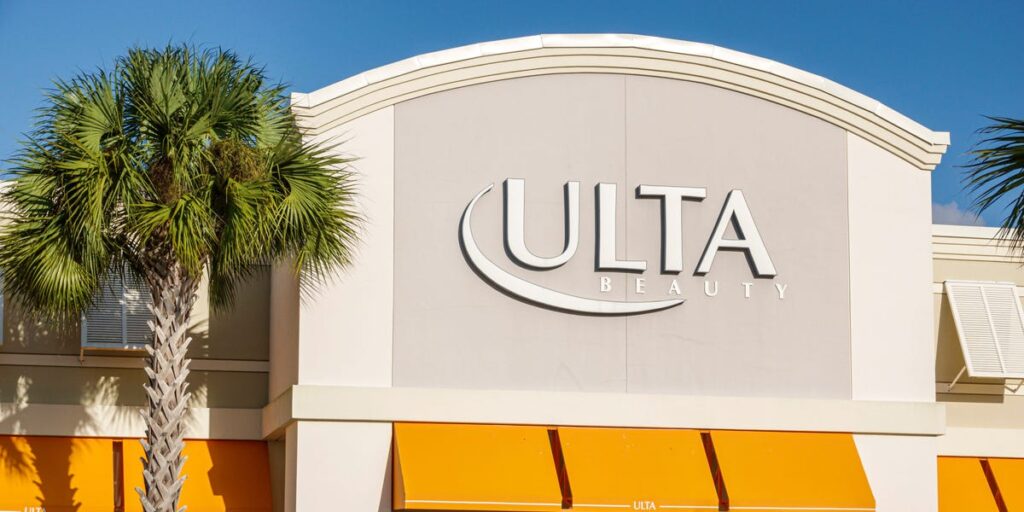Retail therapy has been boosting Ulta Beauty’s bottom line.
On Thursday’s earnings call, Ulta’s CEO, Kecia Steelman, said that customers are buying beauty products to cope with big-picture concerns.
“Many consumers indicate that they are leaning into beauty as a comfort and escape from the stress of macro uncertainty,” Steelman said. “We expect this emotional connection will support the category’s resilience going forward.”
She said customers are also willing to give up spending on other non-essential products so they can continue buying makeup and skincare products.
“At the same time, they are cautious and value is an increasingly important priority as they navigate ongoing wallet pressures,” Steelman added.
Her remarks echoed what retailers across fast food, toys, and fashion have said about consumers tightening their spending in the last year.
Steelman added that the amount spent per customer is fairly consistent across all income groups. Other retailers and banks have reported lower-income groups pulling back their spending more.
Ulta said that first-quarter revenue rose 4.5% to $2.8 billion compared to the same period last year. The cosmetics retailer beat quarterly expectations and raised its annual profit forecast.
Steelman said sales were boosted by established brands such as MAC, Estee Lauder, and Lancome, and by newly launched ones such as Tatcha, Milk Makeup, and K-beauty brand Peach & Lily.
Shares of the company were up about 8% in after-hours trading. Ulta is up 9% in the past year because of resilience in the beauty category.
Ulta’s results were a bright spot in an earnings season that was tough on US retail.
Last week, Target missed first-quarter revenue estimates as transactions fell, and the retail giant cut its full-year sales outlook. The world’s largest retailer posted a similar outlook earlier this month: Walmart fell short of quarterly sales estimates, as customers pulled back on spending because of tariffs.
“We’re wired for everyday low prices, but the magnitude of these increases is more than any retailer can absorb,” Walmart’s chief financial officer, John David Rainey, said in an interview with CNBC earlier this month.
He added that import duties, which for China were recently slashed to 30% for 90 days, were “still too high.”
Read the full article here


